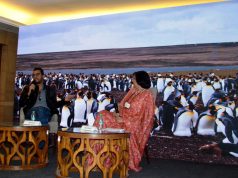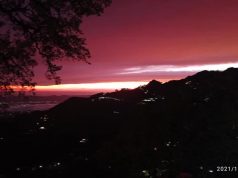By Abhiraj Singh
The hill state of Uttarakhand was created after a long struggle. The regions of Garhwal and Kumaon were taken out of Uttar Pradesh with some non-hilly terrain to form Uttaranchal in 2000. The name was later changed to Uttarakhand. Uttarakhand has always shared a distinct history, politics, geography and culture than the rest of Uttar Pradesh. Uttarakhand was ruled by Kunindas during Maurya times and later saw the rule of Kushans, Yaksh and Katyuris. In the mediaeval and modern period it was ruled by Panwars and Chand rulers. Uttarakhand is also known for its unique cultural practices that are seen nowhere in India. The dev doli, jagars, ghadiyala, achari, etc., are part of these unique and socio religious practices of the people of Uttarakhand. All these factors created a demand for self-determination in the form of a separate hill state and that was also fulfilled.
But today the situation seems more dynamic than a few decades ago. The cultural uniqueness of the
state is being diluted slowly and rapidly specially in cities and its adjoining areas. The culture of practicing local fairs and festivals is being taken over by shopping in big cities like Dehradun and Haldwani. Western attire and clothing are being preferred more widely than the traditional outfits. All this is a manifestation of globalised culture where people see traditional outfits, food, cuisine, etc., as backward and inferior. Many questions are also being asked regarding the Divine possession of humans by Devi-Devtas. A few people also consider this essential practice of Pahadi people as superstition, who try to convey their opinions through social media platforms. The concept of Western logic and rationality is being used to judge the traditional practices of Uttarakhand to brand them as modern or superstitious. How far this is right or wrong depends upon the convenience of the people who are blinded by Western material development. The new generation of youth in Uttarakhand is being influenced by consumerism, drugs, alcohol and all such modern sins arising out of a capitalist economy. The people of Uttarakhand today are known for selling high priced Maggie and tea to people visiting the state. The identity of innocent Pahadi people is gradually fading from public memory.
All these social practices and trends in one way or the other are creating a culture uniform to urban areas. The identity of people is gradually changing as the traditional practices of food, cuisine, fairs, festivals are missing at the family and societal level.
The state was formed with a Pahadi identity. This identity was supported by its cultural practices and different language. It is essential thus to protect and preserve the local culture from the ongoing social trends of uniformity. Our traditional culture is the identity and gifts of our ancestors to us. These traditions have taught us to manage our households through social cooperation and utilisation of natural resources through a sustainable way. Saving culture is
important because it provides us with solutions that are nature centric and establishes harmony between humans and nature. The present materialistic and consumerist hunger for products is against environment and sustainability.
It is thus very important for us to promote the local traditions and culture in cities to maintain the uniqueness and diversity that are essential for our social identity. Following the culture of people different from us will create a divergence from our own being. Our culture makes us live in harmony with our own society and environment.







